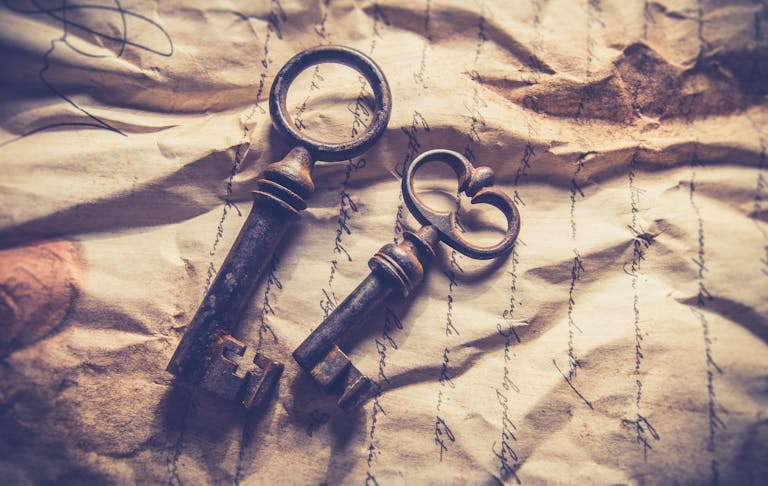9 Types of Accounts I Have That Help My Financial Wellness
This Money System That Changed Everything What if I told you that the key to financial success isn’t just only about earning…
This Money System That Changed Everything
What if I told you that the key to financial success isn’t just only about earning more money—but it’s also about managing the money you already have?
The difference between constantly feeling broke and having financial peace often comes down to two thing— money management and organization
Many people struggle with money, not because they don’t make enough, but because they don’t manage it effectively.
I used to believe that having one or two bank accounts was enough, but I quickly realized that lumping all my money together led to overspending.
I used to feel overwhelmed, I never had enough for emergencies, and I was not saving enough, nor was I able to afford to take vacation like I wanted to.
But that all changed when I created a structured system with 9 different accounts, each serving a specific purpose.
I learned that having multiple bank and investment accounts, each with a specific purpose, was the key to making my money work for me. No more having to scramble when an emergency popped up, nor feeling guilty when I want to take a vacation, as well as no more missed opportunities because I wasn’t financially prepared.
This approach has completely transformed my financial wellness. Every dollar has a job, and every financial goal has a place.
So in this post, I’m breaking down the 8 essential accounts I use to stay financially secure, to continue making the progress I am making to build wealth and to keep my finances on track.
From an Investment Brokerage Account to an Opportunity Fund Account, and even a Vacation Account (because financial wellness includes enjoying life too!), these accounts ensure that my money is always working for me in the right way.
So let’s break down these 8 essential accounts, why I have them, and how they’ve helped me build financial stability and security.
Let’s dive in!
9 Types of Accounts I Have That Help My Financial Wellness
1. Investment Brokerage Account – (For Building Long-Term Wealth)
An investment brokerage account is where I grow my money beyond a traditional savings account. This is where I invest in stocks, ETFs, and other assets that appreciate over time. Because my goal is? Long-term wealth creation.
This unlike a savings account, where money just sits and earns minimal interest, investing through an investment brokerage account allows my money to work for me and to grow faster through compounding returns. So whether it’s for retirement, future financial goals, or generational wealth, this account plays a critical role in my financial plan.
Benefits of Having an Investment Brokerage Account :
- Inflation-proofing: Holding cash in a bank account means its value decreases over time due to inflation. Investing helps my money outpace inflation.
- Passive wealth-building: Instead of relying solely on earned income, investing allows my money to work for me, 24/7.
- Long-term goals: Whether it’s for retirement, major purchases, or generational wealth, this account helps me build assets.
Lessons I’ve Learned:
✅ Start early, even with small amounts – Compounding works best over time.
✅ Invest with a strategy – I focus on long-term growth, avoiding short-term speculation.
✅ Diversification matters – Instead of putting all my money in one stock, I spread investments across ETFs, bonds, and index funds.
👉 Tip: If you’re new to investing, consider starting with index funds or ETFs, as they offer diversification and long-term growth potential with less risk than individual stocks.
2. Indexed Universal Life Insurance (IUL) – (For Protection & Wealth Growth)
An IUL stands for – Indexed Universal Life Insurance. However it is more than just life insurance—It is a permanent life insurance policy that works as a strategic financial tool. Unlike traditional life insurance, Indexed Universal Life Insurance (IUL) offers together:
✅ A death benefit to protect my loved ones
✅ Cash value growth linked to market performance that grows overtime
✅ Tax advantages for long-term financial security
This account gives me peace of mind knowing my family is covered while also allowing me to build wealth over time.
Benefits of Having an Indexed Universal Life Insurance (IUL)
- Financial protection: Ensures my loved ones are taken care of if something happens to me.
- Tax advantages: The cash value grows tax-deferred, and I can borrow against it without tax penalties.
- Market-linked growth: Unlike traditional life insurance, an IUL allows the cash value to grow based on market performance (with protection against market losses).
Lessons I’ve Learned:
✅ IUL is a long-term strategy – It takes time to build cash value, so patience is key.
✅ Not all policies are created equal – It’s important to work with a knowledgeable advisor to ensure proper structuring.
✅ Great for estate planning – Can be used for wealth transfer and financial legacy planning.
👉 Tip: If you want a life insurance policy that doubles as an investment vehicle, an IUL might be worth considering.
3. Emergency Fund Account – (My Financial Safety Net)
Emergencies like unexpected medical bills, car repairs, or job loss are unpredictable, but financial stress doesn’t have to be. I keep my emergency fund in a High-Yield Savings Account (HYSA) to earn interest while having quick access when needed.
📌 How much should you save? Experts recommend 3–6 months’ worth of living expenses. However I always say start with what you can and build it over time.
Having this account prevents me from dipping into investments or going into debt when unexpected expenses arise.
Benefits of Having an Emergency Fund Account
- Prevents debt: Instead of relying on credit cards during a crisis, I have cash available.
- Provides peace of mind: Knowing I’m financially prepared reduces stress.
- Avoids financial derailment: Keeps me from dipping into investment or retirement funds.
Lessons I’ve Learned:
✅ 3-6 months of expenses is ideal – However it can be started small and built up over time.
✅ Keep it separate – Mixing emergency funds with regular savings leads to accidental spending.
✅ Liquidity matters – The money should be easily accessible, but not too easy to spend.
👉 Tip: Automate monthly contributions so your emergency fund grows effortlessly.
4. Opportunity Fund Account– (Always Ready for Wealth-Building Moves)
This is one of my favorite accounts! Unlike my emergency fund, which is strictly for crises, my Opportunity Fund Account is for seizing financial opportunities.
Whether it’s:
- A real estate deal
- A business Investment
- Buying land or other assets
Having liquid cash set aside allows me to move fast when an opportunity arises. This account also sits in a High Yeild Savings Account (HYSA), so it earns interest while waiting to be used.
Benefits of Having an Opportunity Fund Account
- Allows me to act quickly when an investment opportunity arises.
- Keeps risk manageable by using saved cash rather than borrowing money.
- Helps me grow wealth intentionally.
Lessons I’ve Learned:
✅ Keep this money separate from my emergency fund – They serve different purposes.
✅ Opportunities always come – Being prepared lets me take advantage of them.
✅ Patience is key – I don’t rush into investments just because I have the funds.
👉 Tip: If you’re serious about building wealth, start an opportunity fund before you even find an investment.
5. Vacation Account – (For Leisure and Travel)
Traveling is is something I enjoy doing, but I refuse to go into debt for it. That’s why I have a Vacation Fund in a High Yield Savings Account (HYSA) dedicated to travel expenses—like flights, hotels and spending money, where I consistently save for trips I want to take.
Why it works:
- I don’t feel guilty spending money on vacations because I planned for it
- No dipping into emergency funds or credit cards
- My trips feel even better knowing they’re paid in full
If you love to travel, this account is a game-changer!
Benefits of Having a Vacation Account
- No guilt about spending – It’s pre-planned fun money.
- Prevents debt – No vacations on credit cards!
- Enhances the experience – Travel feels better when it’s fully funded.
Lessons I’ve Learned:
✅ Planning vacations in advance helps me save consistently.
✅ Having a set budget prevents overspending and financial regret later.
✅ Experiences are worth the investment, but only if they don’t create debt.
👉 Tip: Set up automatic deposits so you’re always saving for your next trip.
6. Help or Charity Account – (For Supporting Needs, Causes & People)
I believe in giving back, and having a dedicated account for charity, donations, helping others and supporting causes I care about ensures I can do so consistently.
💡 Why I love this account:
Benefits of Having a Help or Charity Account
- It keeps generosity a priority in my financial plan
- Helps me bless others without financial strain
- Aligns with my values of stewardship and impact
- Ensures I give without impacting other financial goals.
Instead of scrambling to give when a need arises, I already have funds allocated for helping others intentionally.
Lessons I’ve Learned:
✅ Giving feels better when it’s planned and not last-minute.
✅ Even a small percentage makes a difference over time.
✅ Having a set amount for charity allows me to be generous without affecting my budget.
👉 Tip: Decide on a percentage of your income to give each month and stick to it.
7. Personal Account – (For My Wants & Self-Care Needs)
This account is for ME!
I use this checking account for passing my salary payment through to disperse and transfer funds to all my other accounts.
I also use it for keeping my personal funds alocated to myself for:
- Tithing
- Personal Care Needs and Items
- Shopping
- Fun
- Coffee dates and dinners with a friend
Having a personal account ensures I enjoy life without feeling like I’m neglecting my financial responsibilities.
💡 Why it works: It keeps my personal spending separate from bills and investments, so I don’t feel guilty when I treat myself.
Benefits of Having a Personal Account
- Ensures I prioritize myself in my financial plan.
- Keeps personal expenses separate from essential bills.
- Prevents overspending in other areas.
Lessons I’ve Learned:
✅ Prioritizing myself financially is not selfish—it’s self-care.
✅ Separating personal spending from main expenses helps me avoid guilt.
✅ Having this account stops me from dipping into savings or emergency funds for non-essentials.
👉 Tip: Set a monthly spending limit so you enjoy without overindulging.
8. Household & Home Expense Account – (For Running My Life Affairs Smoothly)
This is my main bill-pay account, where all my essential expenses are covered, including:
- Rent or mortgage
- Utilities (lights, cable, internet etc)
- Groceries & household needs
Keeping this in a separate checking account ensures that bills are always covered first before spending elsewhere. It also helps with budgeting by keeping fixed expenses organized.
Benefits of Having a Household & Home Expense Account
- Keeps fixed expenses organized and accounted for.
- Ensures bills are paid before discretionary spending.
- Helps me track monthly spending trends.
Lessons I’ve Learned:
✅ Tracking household expenses helps me budget better and cut unnecessary costs.
✅ Automating bill payments eliminates stress and late fees.
✅ Keeping household expenses separate from personal spending ensures financial clarity.
👉 Tip: Automate recurring bill payments to avoid late fees and stress.
9. Income Taxes Account – (Staying Ahead of Tax Obligations)
This account is where I set aside money specifically for income taxes. Since I have multiple income streams, including investments, business revenue, and freelance work, because I don’t always have taxes automatically deducted. Keeping this in a separate checking account ensures that monies for income taxes is covered.
Benefits of Having a Income Taxes Account
- Avoids tax surprises: Nothing is worse than realizing you owe a large tax bill without the money set aside.
- Prepares me for quarterly tax payments: Since I don’t have taxes automatically withheld like W-2 employees, I make estimated tax payments throughout the year.
- Financial peace of mind: Instead of scrambling for funds during tax season, I always have the money ready.
Lessons I’ve Learned
✅ Set aside a percentage of every income source – I usually allocate 20-30% of my earnings, depending on tax brackets and deductions.
✅ Track tax-deductible expenses – Keeping good records helps me lower my taxable income legally.
✅ Separate tax money from other savings – Mixing tax funds with regular savings can lead to accidental overspending.
✅ Consulting a tax professional is worth it – Tax laws change, and professional advice helps me maximize deductions and avoid penalties.
👉 Tip: If you have self-employment income, investments, or business revenue, create a tax account and set up automatic transfers to stay ahead of tax obligations.
Final Thoughts:
Having multiple accounts might seem like extra work, but it has completely transformed my financial life. Each account has a clear purpose, ensuring that I:
✅ Always have money for emergencies
✅ Can invest in opportunities without hesitation
✅ Enjoy life without guilt
✅ Give generously and with intention
✅Stay financially organized
✅ Make intentional money decisions
✅ Eliminate stress around spending and saving
✅ Create long-term financial stability and wealth
If you’re looking to take control of your finances and experience true financial wellness, consider setting up these 8 strategic accounts and watch your money work smarter, not harder and watch how they bring clarity, peace, and purpose to your money!
Which of these accounts do you already have? Are there any you’d like to add to your financial system? Let’s discuss in the comments!



